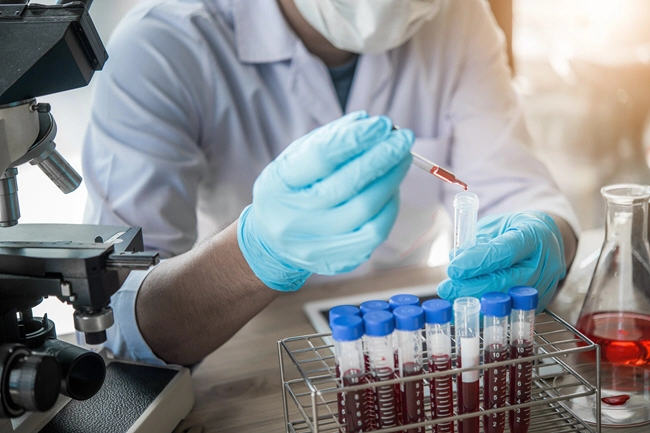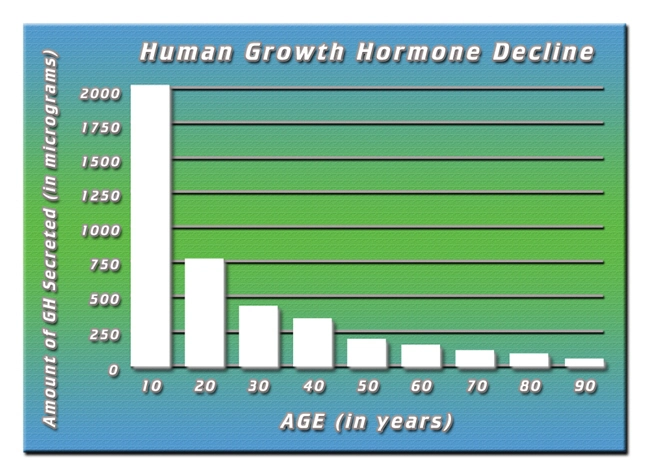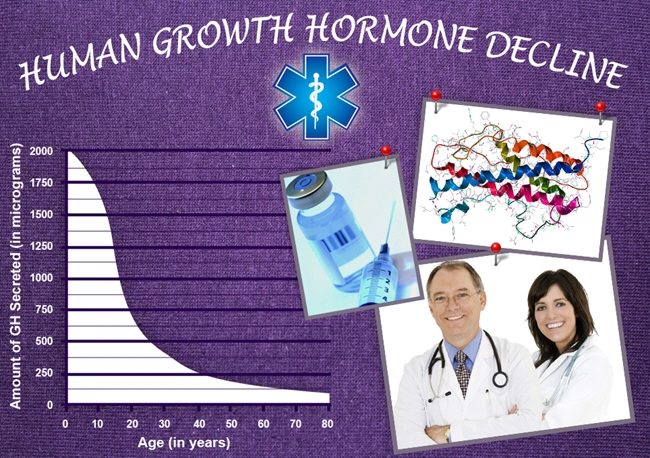
Introduction
Hypopituitarism, a condition characterized by the decreased secretion of one or more of the eight hormones normally produced by the pituitary gland, can lead to a myriad of metabolic changes, particularly affecting glucose and lipid profiles. This article delves into a detailed investigation of these metabolic shifts among American males diagnosed with hypopituitarism, examining longitudinal data to better understand the progression and impact of the disease on metabolic health.
Study Design and Methodology
The study involved a cohort of 200 American males aged between 30 and 65 years, all diagnosed with hypopituitarism. Participants were followed for a period of five years, with regular assessments of their glucose and lipid profiles. Fasting blood samples were collected at six-month intervals to monitor levels of glucose, total cholesterol, HDL cholesterol, LDL cholesterol, and triglycerides. Additionally, participants underwent annual oral glucose tolerance tests to assess their glucose metabolism more comprehensively.
Glucose Profile Changes
Over the course of the study, a significant increase in fasting glucose levels was observed among the participants. At the start, the mean fasting glucose level was 95 mg/dL, which escalated to 110 mg/dL by the end of the five-year period. This rise suggests a progression towards impaired glucose tolerance and potentially diabetes mellitus, a common metabolic complication in hypopituitarism due to the lack of growth hormone and other pituitary hormones that play roles in glucose regulation.
Moreover, the oral glucose tolerance tests revealed that 30% of the participants developed overt diabetes by the end of the study, highlighting the need for vigilant monitoring and early intervention in this population.
Lipid Profile Alterations
The lipid profiles of the study participants also underwent notable changes. Total cholesterol levels increased from an average of 180 mg/dL at baseline to 210 mg/dL after five years. Similarly, LDL cholesterol levels rose from 100 mg/dL to 125 mg/dL, indicating a heightened risk for cardiovascular diseases, which is often exacerbated in hypopituitarism.
Conversely, HDL cholesterol levels showed a slight decline, from 45 mg/dL to 40 mg/dL, further compounding the cardiovascular risk. Triglyceride levels, on the other hand, exhibited a significant increase, from 150 mg/dL to 190 mg/dL, which is consistent with the metabolic syndrome often seen in patients with hormonal imbalances.
Impact of Hormone Replacement Therapy
A subset of the participants was on hormone replacement therapy (HRT) throughout the study. This group showed a less pronounced increase in both glucose and lipid levels compared to those not receiving HRT. Specifically, the increase in fasting glucose was only 10 mg/dL over five years in the HRT group, compared to 20 mg/dL in the non-HRT group. Similarly, the rise in total cholesterol was moderated to 20 mg/dL in the HRT group, versus 35 mg/dL in those without HRT.
These findings underscore the potential benefits of HRT in managing the metabolic complications of hypopituitarism, although further studies are needed to optimize treatment protocols and dosages.
Conclusion
This longitudinal study on American males with hypopituitarism provides critical insights into the metabolic changes, particularly in glucose and lipid profiles, that occur over time. The data highlight the increased risk of developing diabetes and cardiovascular diseases in this population, emphasizing the importance of regular monitoring and possibly the use of HRT to mitigate these risks. As hypopituitarism continues to be a significant health concern, understanding its metabolic implications is crucial for improving patient outcomes and quality of life.
Contact Us Today For A Free Consultation
Dear Patient,
Once you have completing the above contact form, for security purposes and confirmation, please confirm your information by calling us.
Please call now: 1-800-380-5339.
Welcoming You To Our Clinic, Professor Tom Henderson.

- Hypopituitarism and Cardiovascular Health: Unraveling the Intricate Links in American Males [Last Updated On: February 25th, 2025] [Originally Added On: February 25th, 2025]
- Hypopituitarism and Metabolic Syndrome in American Males: An Emerging Health Crisis [Last Updated On: March 5th, 2025] [Originally Added On: March 5th, 2025]
- American Males' Experiences with Hypopituitarism: Challenges and Coping Strategies [Last Updated On: March 8th, 2025] [Originally Added On: March 8th, 2025]
- Unveiling the Cardiovascular Risks: Hypopituitarism and Heart Disease in American Males [Last Updated On: March 16th, 2025] [Originally Added On: March 16th, 2025]
- Unraveling the Connection: Hypopituitarism and Uterine Fibroids in American Males [Last Updated On: March 16th, 2025] [Originally Added On: March 16th, 2025]
- Understanding Hypopituitarism and Its Impact on Male Reproductive Health [Last Updated On: March 16th, 2025] [Originally Added On: March 16th, 2025]
- Unraveling the Hormonal Nexus: Hypopituitarism and Its Implications for Breast Cancer in American Males [Last Updated On: March 16th, 2025] [Originally Added On: March 16th, 2025]
- Hypopituitarism and Autoimmune Disorders: Insights and Management in American Males [Last Updated On: March 16th, 2025] [Originally Added On: March 16th, 2025]
- Hypopituitarism's Cognitive Impact on American Males: Memory, Attention, and Executive Function [Last Updated On: March 17th, 2025] [Originally Added On: March 17th, 2025]
- Hypopituitarism and Obesity in American Males: Hormonal Impacts and Management Strategies [Last Updated On: March 17th, 2025] [Originally Added On: March 17th, 2025]
- Hypopituitarism's Impact on Sleep in American Men: Hormonal Imbalances and Treatment [Last Updated On: March 17th, 2025] [Originally Added On: March 17th, 2025]
- Hypopituitarism in Aging American Males: Symptoms, Diagnosis, and Management Strategies [Last Updated On: March 18th, 2025] [Originally Added On: March 18th, 2025]
- Hypopituitarism and Cancer Risk in American Males: Monitoring and Management Strategies [Last Updated On: March 18th, 2025] [Originally Added On: March 18th, 2025]
- Hypopituitarism and Pituitary Tumors: Surgical Treatment and Outcomes in American Males [Last Updated On: March 19th, 2025] [Originally Added On: March 19th, 2025]
- Hypopituitarism in American Males: Impacts and Management of Mental Health [Last Updated On: March 19th, 2025] [Originally Added On: March 19th, 2025]
- Multidisciplinary Care Essential for Managing Hypopituitarism in American Males [Last Updated On: March 19th, 2025] [Originally Added On: March 19th, 2025]
- Hypopituitarism in American Males: Hormonal Impact on Skin Health and Management Strategies [Last Updated On: March 19th, 2025] [Originally Added On: March 19th, 2025]
- Hypopituitarism and Anemia in American Males: The Role of Erythropoietin Deficiency [Last Updated On: March 20th, 2025] [Originally Added On: March 20th, 2025]
- Hypopituitarism's Impact on Kidney Function in American Males: Monitoring and Management [Last Updated On: March 21st, 2025] [Originally Added On: March 21st, 2025]
- Hypopituitarism in American Males: Hormonal Imbalances and Joint Health Impacts [Last Updated On: March 22nd, 2025] [Originally Added On: March 22nd, 2025]
- Hypopituitarism and Hearing Loss: Exploring Links in American Males [Last Updated On: March 23rd, 2025] [Originally Added On: March 23rd, 2025]
- Hypopituitarism and CFS Overlap: Implications for American Males' Diagnosis and Management [Last Updated On: March 23rd, 2025] [Originally Added On: March 23rd, 2025]
- Hypopituitarism and Migraines in American Males: Hormonal Links and Treatment Strategies [Last Updated On: March 23rd, 2025] [Originally Added On: March 23rd, 2025]
- Hypopituitarism's Impact on Liver Health in American Males: Risks and Management [Last Updated On: March 23rd, 2025] [Originally Added On: March 23rd, 2025]
- Hypopituitarism in American Males: Impacts on Eye Health and Vision [Last Updated On: March 23rd, 2025] [Originally Added On: March 23rd, 2025]
- Hypopituitarism's Impact on Asthma in American Males: Hormonal Insights and Management [Last Updated On: March 23rd, 2025] [Originally Added On: March 23rd, 2025]
- Hypopituitarism's Role in Alzheimer's: Hormonal Imbalances and Cognitive Decline [Last Updated On: March 23rd, 2025] [Originally Added On: March 23rd, 2025]
- Hypopituitarism's Impact on Gastrointestinal Health in American Males: Diagnosis and Management [Last Updated On: March 24th, 2025] [Originally Added On: March 24th, 2025]
- Hypopituitarism's Impact on Muscle Strength in American Males: Diagnosis and Management [Last Updated On: March 24th, 2025] [Originally Added On: March 24th, 2025]
- Hypopituitarism and Hair Loss in American Males: Causes, Impacts, and Emerging Treatments [Last Updated On: March 24th, 2025] [Originally Added On: March 24th, 2025]
- Hypopituitarism's Impact on Osteoarthritis in American Males: A Comprehensive Analysis [Last Updated On: March 24th, 2025] [Originally Added On: March 24th, 2025]
- Hypopituitarism and Lupus Link in American Males: Diagnostic and Treatment Challenges [Last Updated On: March 24th, 2025] [Originally Added On: March 24th, 2025]
- Hypopituitarism and CKD: Pathophysiology, Monitoring, and Management in American Males [Last Updated On: March 25th, 2025] [Originally Added On: March 25th, 2025]
- Hypopituitarism in American Males: Impacts on Immune System and Management Strategies [Last Updated On: March 25th, 2025] [Originally Added On: March 25th, 2025]
- Hypopituitarism and Gout Link: Uric Acid's Role in American Males [Last Updated On: March 25th, 2025] [Originally Added On: March 25th, 2025]
- Hypopituitarism and Gallbladder Disease: Exploring Links in American Males [Last Updated On: March 25th, 2025] [Originally Added On: March 25th, 2025]
- Hypopituitarism and Liver Cirrhosis: Impacts and Management in American Males [Last Updated On: March 25th, 2025] [Originally Added On: March 25th, 2025]
- Hypopituitarism and Sjögren's Syndrome: Impacts on Exocrine Glands in American Males [Last Updated On: March 26th, 2025] [Originally Added On: March 26th, 2025]
- Exploring Hypopituitarism and MS Connection in American Males: Diagnosis and Treatment Implications [Last Updated On: March 26th, 2025] [Originally Added On: March 26th, 2025]
- Hypopituitarism and Parkinson's: Neurodegenerative Impacts on American Males [Last Updated On: March 26th, 2025] [Originally Added On: March 26th, 2025]
- Hypopituitarism and Heart Disease Risks in American Males: Diagnosis, Management, and Prevention [Last Updated On: March 26th, 2025] [Originally Added On: March 26th, 2025]
- Hypopituitarism's Impact on Pancreatitis: Risks and Management for American Males [Last Updated On: March 26th, 2025] [Originally Added On: March 26th, 2025]
- Hypopituitarism and Allergies in American Men: Exploring Hormonal and Immune Links [Last Updated On: March 27th, 2025] [Originally Added On: March 27th, 2025]
- Hypopituitarism in American Males: Stroke Risk and Hormonal Management Strategies [Last Updated On: March 27th, 2025] [Originally Added On: March 27th, 2025]
- Hypopituitarism and Fibromyalgia: Overlapping Symptoms and Diagnostic Challenges in American Males [Last Updated On: March 27th, 2025] [Originally Added On: March 27th, 2025]
- Hypopituitarism and Seizures: Neurological Links and Management in American Males [Last Updated On: March 27th, 2025] [Originally Added On: March 27th, 2025]
- Hypopituitarism and Hypertension: Impacts on Blood Pressure in American Males [Last Updated On: March 27th, 2025] [Originally Added On: March 27th, 2025]
- Hypopituitarism's Link to Ovarian Cancer: Implications for American Male Health [Last Updated On: March 27th, 2025] [Originally Added On: March 27th, 2025]
- Autoimmune Link Between Hypopituitarism and RA in American Males: Clinical Insights [Last Updated On: March 27th, 2025] [Originally Added On: March 27th, 2025]
- Hypopituitarism and Prostate Cancer: Understanding and Managing the Interplay in Men's Health [Last Updated On: March 27th, 2025] [Originally Added On: March 27th, 2025]
- Hypopituitarism and IBD in American Males: Clinical Insights and Management Strategies [Last Updated On: March 28th, 2025] [Originally Added On: March 28th, 2025]
- Hypopituitarism and Diabetes Mellitus: Impacts on Glucose Metabolism in American Males [Last Updated On: March 28th, 2025] [Originally Added On: March 28th, 2025]
- Hypopituitarism and Lipid Disorders in American Males: Risks and Management Strategies [Last Updated On: March 28th, 2025] [Originally Added On: March 28th, 2025]
- Endocrine Disorders in American Males: Hypopituitarism and Adrenal Cancer Link Explored [Last Updated On: March 28th, 2025] [Originally Added On: March 28th, 2025]
- Autoimmune Link Between Hypopituitarism and Celiac Disease in American Males [Last Updated On: March 29th, 2025] [Originally Added On: March 29th, 2025]
- Hypopituitarism and Breast Cancer Link in American Males: Hormonal Insights and Clinical Implications [Last Updated On: March 29th, 2025] [Originally Added On: March 29th, 2025]
- Hypopituitarism and Pituitary Cancer: Impact, Detection, and Management in American Males [Last Updated On: March 29th, 2025] [Originally Added On: March 29th, 2025]
- Hormonal Imbalances Linking Hypopituitarism and Thyroid Cancer in American Males [Last Updated On: March 30th, 2025] [Originally Added On: March 30th, 2025]
- Hypopituitarism and Benign Tumors in American Males: Exploring Gynecological Links [Last Updated On: April 2nd, 2025] [Originally Added On: April 2nd, 2025]
- Hypopituitarism and Testicular Cancer: Impacts on Male Fertility and Management Strategies [Last Updated On: April 2nd, 2025] [Originally Added On: April 2nd, 2025]
- Hormonal Links Between Hypopituitarism and Endometriosis in American Males: Diagnosis and Treatment [Last Updated On: April 3rd, 2025] [Originally Added On: April 3rd, 2025]
- Hypopituitarism: Impact on Female Reproductive and Vaginal Health Management [Last Updated On: April 5th, 2025] [Originally Added On: April 5th, 2025]
- Hypopituitarism and PCOS: Impacts, Diagnosis, and Integrated Management Strategies [Last Updated On: April 5th, 2025] [Originally Added On: April 5th, 2025]
- Hypopituitarism's Impact on Male Sexual Health and Erectile Dysfunction [Last Updated On: April 5th, 2025] [Originally Added On: April 5th, 2025]
- Hypopituitarism and Premature Ejaculation: Hormonal Links and Treatment Strategies in American Males [Last Updated On: April 5th, 2025] [Originally Added On: April 5th, 2025]
- Hypopituitarism's Impact on Penile Health and Male Reproductive Function [Last Updated On: April 6th, 2025] [Originally Added On: April 6th, 2025]
- Exploring Metabolic Links: Hypopituitarism and Gestational Diabetes in American Males [Last Updated On: April 8th, 2025] [Originally Added On: April 8th, 2025]
- Hypopituitarism in Males: Exploring Links to Miscarriage and Fertility Issues [Last Updated On: April 8th, 2025] [Originally Added On: April 8th, 2025]
- Hypopituitarism and Cervical Cancer: Hormonal Monitoring in American Males [Last Updated On: April 9th, 2025] [Originally Added On: April 9th, 2025]
- Hypopituitarism's Impact on Lactation in American Males: Challenges and Management [Last Updated On: April 11th, 2025] [Originally Added On: April 11th, 2025]
- Hypopituitarism and Postpartum Depression: Impacts on Mental Health in American Males [Last Updated On: April 11th, 2025] [Originally Added On: April 11th, 2025]
- Hypopituitarism and Preeclampsia: The Critical Role of Hormonal Monitoring in Pregnancy [Last Updated On: April 12th, 2025] [Originally Added On: April 12th, 2025]
- Hypopituitarism and Ectopic Pregnancy: Impacts and Management in Women's Health [Last Updated On: April 12th, 2025] [Originally Added On: April 12th, 2025]
- Hypopituitarism's Impact on Male Fertility: Symptoms, Diagnosis, and Treatment Options [Last Updated On: April 13th, 2025] [Originally Added On: April 13th, 2025]
- Hypopituitarism in American Males: Impact on Acne and Skin Health Management [Last Updated On: April 15th, 2025] [Originally Added On: April 15th, 2025]
- Hypopituitarism and Alopecia in American Males: Causes, Impacts, and Treatment Options [Last Updated On: April 15th, 2025] [Originally Added On: April 15th, 2025]
- Hypopituitarism in American Males: Understanding Vision Loss and Treatment Options [Last Updated On: April 16th, 2025] [Originally Added On: April 16th, 2025]
- Hypopituitarism and Andropause: Impacts and Management in Aging American Men [Last Updated On: April 17th, 2025] [Originally Added On: April 17th, 2025]
- Hypopituitarism and Vestibular Dysfunction: Impacts and Management in American Males [Last Updated On: April 18th, 2025] [Originally Added On: April 18th, 2025]
- Hypopituitarism's Impact on Dental Health in American Males: Monitoring and Management [Last Updated On: April 18th, 2025] [Originally Added On: April 18th, 2025]








